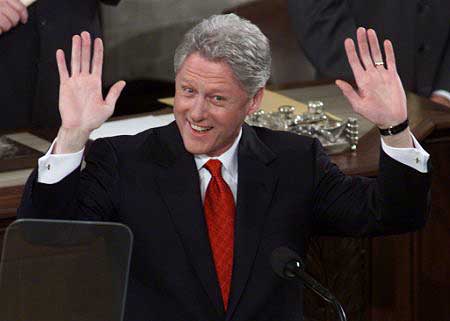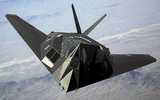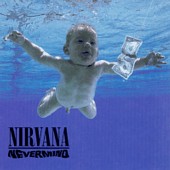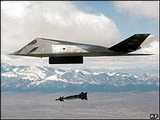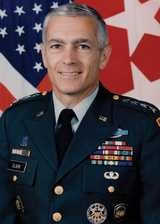
|
1993 Inauguration
|
|
Hillary at Univ. of Colorado
|
|
F-117 Nighthawk stealth
|
|
Ginsburg
|
|
Rabin, Clinton, Arafat
|
Bill Clinton inaugurated Jan. 20 as the 42nd President, Al Gore VP. Clinton had no mandate from the 1992 election, winning only 43% of the popular vote, and face a Congress with dwindling Democratic majorities and a growing right-wing Republican insurgency that sought tax reductions for the wealthy, elimination of the capital gains tax for corporations, state rights, reduction of the federal budget and Medicare and federal regulations, revival of the Reagan Revolution social agenda for school prayer, anti-abortion, immigration restriction, neo-isolationism that was xenophobic, unilateralist, anti-internationalist, opposed participation in UN peacekeeping missions, opposed the IMF bailouts of Mexico in 1994 and Yeltsin's Russia in 1996 and Brazil in 1998 and the "Asian economic flu" in 1997-98.
Bill appointed Hillary Jan. 25 to reform health care, his "most important and ambitious initiative," but effort ended Sep. 1994
The World Trade Center was damaged by a terrorist bomb explosion Feb. 26 in the underground parking garage, killing 5
David Koresh and 95 followers of his Branch Davidian cult in Waco TX committed suicide or burned to death in the fire caused by an attack by FBI armored vehicles Apr. 19
US launched cruise missiles June 26 against Iraqi intelligence headquarters in Baghdad due to plot to kill former Pres. George Bush
Clinton renewed MFN rights with China after some dissidents freed in June, and granted full MFN status in 1994, putting trade ahead of human rights questions
Clinton announced July 19 the "Don't ask, don't tell, don't pursue" policy to allow gays to serve in the military
Ruth Bader Ginsburg took the oath of office on August 10 after the Senate voted 97-3 to confirm her nomination to the Supreme Court, having led from 1972 to 1980 the ACLU Women's Rights Project to bring cases before the Supreme Court that challenged sex-based discrimination, and having been appointed by Carter in 1980 to the U.S. Court of Appeals for the D. C. Circuit.
Clinton, Rabin, Arafat at the White House 9/13/93 signed an agreement for the autonomy of the Gaza Strip and the West Bank, fulfiling the peace process started by the Madrid Treaty in 1991, and bringing to an end the "intifada"or mass uprising of Palestinians that had cost the lives of thousands since 1987. The next year, Arafat ended his 27-year exile from Palestine and crossed the Egyptian border into his new headquarters in Gaza city 7/1/94 and became head of the new Palestinian National Authority (PA) in the autonomous areas. Israel signed a peace treaty with Jordan 10/26/94. The Oslo II agreement was signed 9/24/95 to divide the West Bank into 3 zones, with 7% transferred to full PA control, 21% under joint control, and the remainder under Israeli control. Many Palestinians and the Israeli religious right opposed this agreement. A Jewish religious extremist assassinated PM Yitzhak Rabin 11/4/95. He was replaced by pro-peace PM Shimon Peres but Peres lost the election 5/29/96 to right-wing Binyamin Netanyahu who allowed the building of new Jewish settlements. Yet pressure from Clinton kept the peace process moving ahead.
|
Wye River
|
Israel transferred 80% of Hebron in January 1997 and signed the Wye River Memorandum 10/23/98 providing for more withdrawals from the West Bank. Netanyahu lost the election 5/18/99 to Ehud Barak who withdrew Israeli forces 5/25/00 from southern Lebanon that had been occupied since 1982. But Yasser Arafat was unable to make any agreement over Jerusalem or return of Palestinian refugees, even after two weeks of talks with Clinton at Camp David. When the new Likud leader Ariel Sharon toured the Temple Mount complex in Jerusalem 9/28/00, a new outbreak of Palestinian-Israeli violence began, known as the second intifada, or mass uprising. Ariel Sharon won the election of 2/6/01 and the violence escalated, with suicide bombs and air strikes. Israel re-occupied most of the West Bank by June 2002 and conducted frequent raids on Palestinian compounds. The Israeli army killed many refugees in the April 2002 "massacre" of the camps in Jenin and Nablus, and troops surrounded the Church of the Nativity in Bethlehem for five weeks until May 2002. The "quartet" of U.S., Russia, the UN, and the EU developed a road map plan that was delayed by the Iraq War in April 2003, but became the agenda for Secretary of State Colin Powell's visit to the Mideast in May 2003. - article
Ferdinand Marcos died in Hawaii, was buried Sep. 10 at his family's home in Laong, was prohibited from Manila by President Fidel Ramos who announced the continued effort to arrest Imelda Marcos for the theft of $5 billion from the Philippines during the Marcos era 1966-86.
Somalia had become a "Cold War orphan" after 1989, and U.S. had withdrawn from the civil war that ousted longtime leader Siad Barre. George Bush sent some marines in Op. Restore Hope to protect relief missions, but warlord Mohamed Aidid would not concede control of Mogadishu. After 17 Rangers were killed in Mogadishu Oct. 3, portrayed in the Black Hawk Down book and film, Clinton within 6 months withdrew American forces from Somalia.
Rwada genocide began in May by Hutu majority against Tutsi minority, killing 800,000 in 89 days. Clinton belatedly sent troops in July to protext relief supplies, but violence continued in Burundi in 1996, and in 1997 Mobutu was overthrown in Zaire.
Yeltsin crushed a rebellion in Moscow Oct. 4, after the army fired on the parliament building to force the surrender of rebels and free hundreds of imprisoned delegates; Clinton followed the "Russia first" strategy of adviser Stobe Talbott and gave unconditional support to Yeltsin despite the suppression of Chechnya 1994-96 and the oligarchic control of the Russian economy.
Clinton signed Nov. 30 the Handgun Violence Prevention Act with James Brady in the White House.
Colombia police Dec. 2 killed drug lord Pablo Escobar, leader of the Medellin cartel.

|
made in China
|
NAFTA took effect Jan. 1, as agreed by Bush in 1992 and Clinton in 1993; an example of NSC advisor Anthony Lake's "enlargement" of free markets; the "Uruguay Round" of GATT created the new World Trade Organization seen by Clinton as promoting "a vision of economic renewal" and part of his "gospel of geoeconomics" but Clinton's "New Economy" of the '90s was a two-tiered economy: international corporations and high-tech innovation produced GNP growth after the Bush recession; Bill Gates and the top 40% became richer but the income of the bottom 60% declined; the poorest 20% income declined 15%; Ross Perot became a political leader of the populist Reform Party because he targeted the "great sucking sound" of jobs lost to lower-cost foreign workers; "globalization" caused a growing trade deficit as Americans imported more than they exported, and the gap between the rich and poor grew larger.
Clinton trip to Moscow Jan. 13 to meet with Boris Yeltsin , promised aid to help Russia's transition from communism to capitalism
NATO began its first air attacks in Bosnia Feb. 28 against Serb planes in the no-fly zone, and NATO demanded the removal of Serb artillery from the hills around Sarajevo
The Loch Ness monster was revealed Mar. 12 to have been a hoax created by Marmaduke Wetherell who used a toy submarine with a head and neck to create the famous photograph 30 years ago; In Britain 3 years earlier, Doug Bower and David Chorley admitted to using long poles and string to create mysterious circles in cornfields
The death of Rwanda President Habyarimana Apr. 7 began the genocide of the majority Hutu people by Tutsi rebels killing 800,000 in 89 days, but Clinton refused to intervene and avoided using the "genocide" word
|
OJ
|
|
Haitian refugees
|
|
Gingrich
|
Nelson Mandela became South Africa's first black President May 10
TV news helicopters filmed the freeway chase of O. J. Simpson in his white Ford Bronco June 17 as thousands lined the highways in LA to cheer him on.
Russia joined NATO June 22
Kenneth Starr took over the Whitewater investigation Aug. 5
Clinton agreed Sep. 9 to allow 20,000 Cubans to immigrate per year if Castro took steps to stop the exodus from Cuba that began with the withdrawal of Russian aid and troops in 1992, but the agreement broke down in 1996 when Cuban MiGs shot down two planes of the Brothers to the Rescue civilian group, causing Congress to pass the Helms-Burton bill to impose economic sanctions and allow Americans to sue foreign companies doing business with properties confiscated by Castro
Haitian General Raoul Cedras agreed Sep. 18 to return Haiti's government to President Jean-Bertrand Aristide, a last-minute deal arranged by Jimmy Carter and Colin Powell and Sen. Sam Nunn averted violence in Op. Uphold Democracy that landed U.S. troops peacefully in Haiti Sep. 19 to occupy the island and disarm the opponents of Aristide.
Clinton mobilized 60,000 troops on the Kuwait border Oct. 31 to prevent another threatened Iraqi invasion.
Republicans used their Contract with America to win the midterm election Nov. 9 to gain control of the Senate 53-47 and the House 230-204 for the first time since 1954, and Newt Gingrich would become the Speaker of the House Jan. 4 of the 104th Congress.
Boris Yeltsin sent tanks into Grozny, capital of Chechnya Dec. 11 to suppress the rebellion led by Gen. Dzhokar Dudayev.
Jimmy Carter arranged Dec. 19 a ceasefire in place with Serb leader Radovan Karadzic, but Serbs were left in control of 70% of Bosnia.

|
Nirvana's Never Mind
|
|
Oklahoma City
|
Generation X, born between 1961 and 1981, reached maturity, the first generation raised from birth on TV, growing up with the Keatons of Family Ties, MTV, The Simpsons, Wonder Years, The Cosby Show, Seinfeld, Friends, and with John Hughes' movies such as Breakfast Club and Ferris Bueller's Day Off and Home Alone, listening to the Alternative music of Nirvana and Enya, comfortable going to work in casual clothes and SUVs drinking Starbucks coffee, embracing the digital revolution.
Clinton used emergency powers Jan. 31 to grant $20 billion loan to Mexico.
Taliban radicals Feb. 14 began attack on Kabul to seize control of Afghanistan in the wake of the collapse of the Soviet-supplied communist government.
Timothy McVeigh exploded a car bomb Apr. 19 and destroyed the Murrah federal building in Oklahoma City killing 168 people.
Clinton trip to Moscow for his 4th summit with Yeltsin May 10, celebrated the 50th anniversary of VE Day, failed to reach agreements on the Chechen war or NATO expansion; Yeltsin's health failing. They would meet again for a 5th summit in October at FDR's home in Hyde Park to commemorate the Allies of WWII. - 1
Scott O'Grady's F-16 shot down June 2 over Bosnia, rescued by Marines 6 days later.
Hugh Grant arrested June 17 in LA for lewd conduct with a prostitute on Sunset Blvd - 1
|
F-117 and PGM
|
|
Wesley Clark
|
Serbs captured Srebrenica July 10, one of six Muslim enclaves designated as safe havens, but 400 Dutch peacekeepers fled with the 20,000 Bosnian refugees.
Croatian and Muslim forces captured Knin Aug. 5, capital of the Serbian province of Krajina, causing 100,000 Serb refugees to flee.
Operation Deliberate Force against the Serbs Aug. 30 to Sept. 20 was NATO's first military campaign since the end of the Cold War. American forces in the air bombardment used smart bombs (Precision Guided Munitions, or PGM, and Laser Guided Bomb, or LGB) dropped by F-117 Stealth fighters from Aviano Air Base in Italy and by F-18 Hornets from the carrier USS Theodore Roosevelt, against 200,000 Serb ground forces in the largest military action since WWII.
Dayton Accords signed Dec. 14 at Wright-Patterson Air Force Base in Ohio after 21 days of talks led by negotiator Richard Holbrooke to end the war between Serbia and Bosnia and Croatia, creating the new Union of Bosnia-Herzegovina made up of two parts, the Muslim Croatian federation and the Serb republic of Bosnia; UN peacekeeping force of 60,000 began arriving in Bosnia, including 20,000 Americans at a cost of $7 billion. Gen. Wesley Clark, military advisor for Holbrooke at Dayton, became NATO commander 1997-2000, ran for president 2004.

|
Ross Perot
|
|
The cabin that Kaczynski built while living in Montana has been held in storage in Rancho Cordova CA (AP 5/2/03)
|
The federal government shut down in Jan., as it had the previous Nov., due to budget impasse between Clinton and Congress; public opinion turned against Gingrich and blamed the Republicans; the 104th Congress failed to pass significant legislation, was seen as a negative Congress, and thereby helped Clinton's popularity rose in the polls.
Secretary of Defense sent 2 carrier forces to face Chinese forces in Taiwan Strait in crisis over missiles fired by China near Taiwan in March, but relations improved, President Jiang Zemin visited U.S. Oct. 1997 and Clinton visited China 1998.
The FBI arrested Ted Kaczynski Apr. 4 for 16 attacks over the previous 17 years against universities and the tecnological elite. Kaczynski pleaded guilty in 1998 to his bombing spree that began in 1979 and killed three people and injured 23. Kaczynski, dubbed the Unabomber, lived alone in a remote cabin in Montana and led authorities on the nation's longest and costliest manhunt.
Clinton business associates James and Susan McDougal were found guilty May 28 in the Little Rock Whitewater scandal.
Dharhran bomb exploded in Saudi Arabia killing 19 soldiers June 25.
Yeltsin won re-election as President of Russia July 4 with 53.7% popular vote, helped by $10 billion credit line from Clinton; Yeltsin arranged ceasefire Aug. 23 in Chechnya to begin troop withdrawals, but the rebels stubbornly continued fighting.
|
Albright
|
U.S. warships launched 27 cruise missiles into Iraq Sep. 3 due to Saddam's attacks on the Kurds
Bill Clinton (49.3%) defeated Bob Dole (40.7%) and Ross Perot (8.4%) in the presidential election Nov. 6, the first Democratic incumbent to win re-election since 1936, but Republicans continued to control Congress and the voter turnout was the lowest since 1924.
Clinton appointed Madeleine Albright Dec. 12 to replace Warren Christopher and to become the first woman Secretary of State; she was born in Prague 1937, her family driven out by Stalin 1948, earned Ph.D at Columbia 1976, became the "Lady of Steel" adept at "threat-based diplomacy"

|
Tony Blair
|
Bill Clinton inaugurated Jan. 20 to begin his second term of office, called for a "new spirit of community" and the need to eliminate the "constant curse" of racism. However, Republican conservatives relentlessly persued the Whitewater savings and loan fraud investigation in Arkansas seeking to link it to the White House, the first of several scandals that followed: Al Gore's illegal campaign fundraising, the Paula Jones civil suit for sexual harassment that revealed "Monicagate" by 1998.
The U.S. ratified the 1993 Chemical Convention and agreed to destroy all chemical weapons by 2005, as it had agreed since 1972 to ban all biological weapons, but Clinton did not sign the anti-land mines treaty of 1997 because troops used mines to defend the DMZ in Korea
Tony Blair won a landslide election victory May 2 in Britain for the Labour Party, and at age 43 became the youngest PM of the century; Princess Diana killed Aug. 31 in Paris car crash
Revolt in the Congo (formerly Zaire) caused downfall of pro-U.S. Mobutu Ses Seko; U.S. recognized Laurent Kabila as the new leader, but Kabila began the slaughter of Hutus and a civil war in the Congo

|
Linda Tripp
|
|
Clinton
|
In March, Clinton went to Africa to visit six nations and praised the "African Renaissance" made possible by U.S. foreign aid, including Nigeria that had become an important supplier of oil to the U.S.
Viagra went on sale Apr. 10, made by Pfizer Pharmaceuticals of New York.
Linda Tripp testified June 30 to grand jury that she recorded 20 hours of telephone conversations with Monica Lewinsky; on Aug. 6 Lewinsky testified to numerous sexual encounters with Clinton; on Aug. 17 Clinton denied any sexual relationship in videotaped grand jury testimony released to the public Sep. 21; the House voted to impeach Clinton Dec. 19
Clinton announced Sep. 30 the first federal budget surplus since 1969.
Maryland summit in Oct. with Clinton, Arafat, Netanyahu renewed the Mideast peace process, after the assassination of Rabiin in Nov. 1995, the killing of 60 Israelis by PLO bombings in 1996 and the election of hard-liner PM Benjamin Netanyahu in 1996.
Yugoslav president Slobodan Milosevic ordered Serb troops out of Kosovo Oct. 27 under threat of a NATO attack.
Newt Gingrich resigned from Congress Nov. 6 after Republicans lost seats in the midterm elections, reducing their majority to only 5 seats in the House.
Op. Desert Fox air attacks began Dec. 16 against Iraq for failing to allow access to weapons inspectors; 300 cruise missiles fired in 4 days destroyed weapons plants, but Saddam Hussein remained in power
America fired a volley of more than 70 cruise missiles in August at guerrilla training camps in Afghanistan and at a chemical plant in the Sudan reportedly operated by the Saudi multimillionaire Osama bin Laden who was responsible for bombing of two U.S. embassies in Kenya and Tanzania that killed more than 200 people.

|
Kosovo protest
|
|
Gore
|
The Senate voted 55-45 on Feb. 12 to acquit Clinton of charges of perjury and obstruction of justice
NATO, newly expanded with the 3 new members of Poland, Hungary, and the Czech Republic, began on Mar. 24 Operation Allied Force, the 78-day bombing campaign against Serb forces led by Milosevic who had continued "ethnic cleansing" of Albanians in Kosovo, refusing UN and NATO demands to withdraw, and who caused the displacement of 750,000 refugees.
The International War Crimes Tribunal in The Hague on May 27 indicted Milosevic and 4 others for crimes against humanity.
The Yugoslav army began June 10 to withdraw from Kosovo, ending the NATO bombing campaign.

The Russian nuclear submarine Kursk exploded and sank Aug. 12 with the loss of all 188 crew.
George W. Bush (47.8%) defeated Al Gore (48.3%) and Ralph Nader (2.7%) in the presidential election Nov. 6, undecided for 5 weeks due to conflicting counts of the Florida ballots, until the Supreme Court Dec. 12 overruled the Florida state court decision to recount, giving Florida's 25 electoral votes to Bush who was declared the winner by the Electoral College Dec. 18 271-266, even though Gore won 500,000 more popular votes than Bush nationwide. Nader's 96,837 votes in Florida were significant in depriving Gore of winning the state's electoral votes. The election revealed the persistence of deep divisions in American society, rich vs poor, urban vs rural, black vs. white.
|
mistaken Post Nov. 8 - eg
|
Florida ballot chads examined
|
Person of the Year Jan. 2001
|
